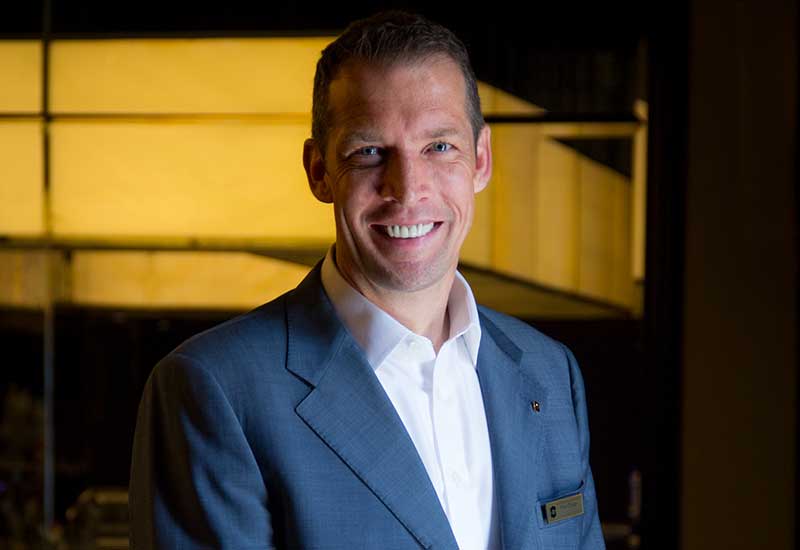“The spa is another [enhancement]; guests had previously commented that it would be nice to have our own spa. We will be able to have a boutique Spa by L’Occitane which will be very exciting.” With the rooms offering the full range of L’Occitane products, the spa will enhance this brand touchpoint.
He continues: “There are other areas that are not new, but enhanced. The beach, the pool, and the courtyard will show a whole different look and offering that meets not only today’s travellers’ needs but something where we can drive a feeling of luxury, exclusivity and privacy.” With the rooms, only a few soft tweaks were carried out, as the rooms were all in good condition.
In a market that is constantly looking to cluster as Hotelier Middle East has seen in many a city, it’s interesting to see a complex go the other way.
Drager comments: “Everyone looks to create shared services for efficiency measures and other things — that’s the new reality. Now here, of course we’re going the opposite. In order to make sure it’s sustainable in the long run, what you can’t do, and what you don’t want to do, is separate all shared services. We have a fully functioning (since the last decade) eco-system here in place with shared resources across all three resorts. Sales and marketing, human resources, engineering are all the backbone of a hotel. What’s important is to do that in a careful, sensible fashion. The operations teams are separate as they should be separate and operate in the Al Husn way. That helps us to foster a feeling of pride and belonging. Other back-of-house shared services have stayed in the same place.”
He reiterates that it is important during a repositioning to have “a clear idea of what you want to be and where you want to end up”.
Drager says that he wants the resort to be recognised as a market leader, not only in Muscat but in Oman.
He is also extremely positive about the hospitality market in the country, saying that it is “light years ahead of other destinations in the GCC in terms of developing its tourism”.
He continues: “At the moment, a huge benefit to Oman that was led for the last 40 years by His Majesty with a modern mindset so it has done a lot of things right. Now, as it becomes more important for the GCC countries to widen their portfolio and look for alternatives to traditional methods of income, Oman is in a really good position there. It is so versatile with its offerings, it really is extremely well positioned to have continued growth in the future.”
Drager concludes: “Repositioning a property is not an overnight procedure. It’s a process, so I think that’s where experience comes in. I have been through hotel openings and re-brandings before; you constantly assess, re-assess, what’s working and not working.
“What’s important is three things: one, we keep Al Husn ‘Al Husn’, recognisable for what it is and for the things people love it for. Two, it should be recognisable as a Shangri-La. Three, we make changes that are sustainable in the long run, I don’t want to make changes for the sake of making changes. We want to make changes that are good for us as well as the owners.”

| Advertisement |





